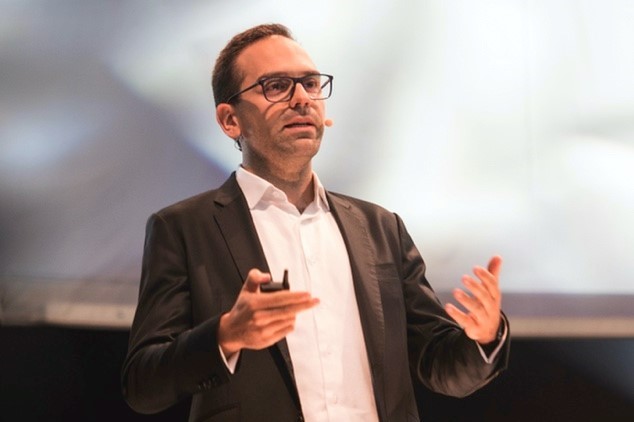-
-
-
Login to Private Wealth
- Personal
- Business
- Private Banking 1859 investments
- Direct brokerage
- NB Financial
- NatBank
-
Out with superhuman leadership, in with “humane” leaders
September 6, 2022 By Michel for Gestion privée 1859
FIRST OFF, CAN WE REALLY TALK ABOUT MENTAL HEALTH IN THE WORKPLACE?
“Inevitably”, he says without hesitation. “Entrepreneurs deal with above-average levels of stress, and we now know that stress is one of the greatest determinants of mental health.”
However, it would be overly simple to look at mental health in the workplace solely through the lens of the individual—the entrepreneur, in this case. The question must be tackled on all business-related fronts—staff, management practices, finances.
TABOOS HAVE ACTUAL COSTS
It is estimated that the cost of poor mental health to the Canadian economy will reach $2.5 trillion by 2041. Paid sick days and decreased productivity represent the greatest share of these costs. Therefore, investing in mental health should be a no-brainer for businesses.
It’s worth pointing out that businesses who take care of their staff’s mental health see their productivity increase. And if productivity is boosted by investments in mental health, so is revenue.
“Businesses who don’t care about their staff’s mental health are heading towards bankruptcy.” — Martin Énault
OPENING THE DIALOGUE
Caring about your staff’s mental health doesn’t have to be complicated, says Énault. “All you need to do, basically, is to not be a source of illness and to be on the lookout for potential red flags. That’s what humane businesses are about.
”There are many ways to do this, but the most important one is to create a space where people feel free to speak up. “There’s no secret about it; if you don’t talk to me, I won’t know how you feel. And it goes both ways. I need to be just as open,” says Énault, quite simply. “Well, if I come in every day wearing a suit and tie and then one morning, I come in wearing jeans and a t-shirt and smelling like booze, I’m obviously not doing great,” he adds for clarification.
Énault believes that to create such a safe space, leaders must be ready to open up themselves. Leaders shouldn’t strive to be superhuman, but simply… human, for better or for worse.
SHOULD WE REALLY THINK OF MENTAL HEALTH IN TERMS OF PROFITS?
Énault believes we should be able to unequivocally correlate mental health and money. “It’s not a bad thing to just straight out say that these initiatives must result in increased productivity and revenue. The better people feel, the more money everyone makes and the happier everyone is.” And the cycle goes on. “At my company, nothing is ever left unsaid anymore. And we have smarter ways to make money. Basically, we deal with issues as soon as they arise and we move forward a lot more quickly.”
HUMAN RESOURCES
Once barriers have been taken down and healthier structures have been put into place, staff who don’t fit in anymore will leave on their own. “At first, some might find it unsettling to be in an environment where people are more genuine, but they eventually get used to it and feel more comfortable, better supported and safer. Those who weren’t straightforward and tended to cause harm usually leave on their own; they don’t feel like they belong in this kind of environment.”
AN ONGOING STRUGGLE FOR EQUALITY
There are a lot of misconceptions about mental health and how it affects people—for instance, when a person opens up and reveals they suffer from mental illness. When Énault first spoke about his bipolarity over a decade ago, his colleagues were very accepting and supportive; some of them even felt inspired by his frankness. But the reactions are not always so positive. Back then, explains Énault, people who talked about their mental health issues could face consequences—especially women, who even risked losing their job.
Although we’ve come a long way since then, full equality is yet to be achieved in terms of how the impacts of mental health on a person are perceived. The “straight white male” mindset is still alive and well and shapes our views.
THE WHITE MALE
Well aware of his privilege in today’s society, Énault insists emphatically on this factor. And he makes a point to take it into consideration in the way he runs his business. “I don’t know how a woman feels when she has her period. I don’t know how it feels to deal with racism. But for some of my staff, this is life. If I don’t acknowledge it, it creates a situation where mental health issues will arise over time,” he says.
The overall mental health of staff—whether relating to sexual orientation, gender identity, socioeconomic conditions or other issues—goes hand in hand with inclusion. Business leaders are not immune to cognitive bias, prejudice, stereotypes and non-inclusive working conditions.
IN CONCLUSION
At the end of the interview, Énault adds : “I feel a lot better today. My relationships are stable, authentic, stronger. Nothing is ever left unsaid anymore, and people open up to me. […] Ultimately, the only remaining taboos are those we self-impose. The truth is, we all have impostor syndrome. The day you’ll be happier is the day you trust yourself. Things will go a lot better once you stop expecting other people to guess what you want and start verbalizing it.”
Martin Énault is Chairman of the Board of Directors at Relief, an organization that offers services to people who live with anxiety, depression or bipolarity. He is also a Lead Entrepreneur in residence at Centech. For Énault, getting involved with the general public and future business leaders is a way to make the most of his experience with mental health and help bring this topic to the forefront for businesses and society.
To find out more about mental health or to seek immediate help, please go to the Wellness Together Canada website or call 1-866-585-0445.

